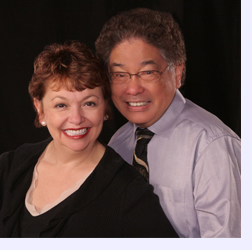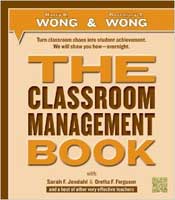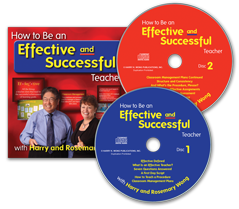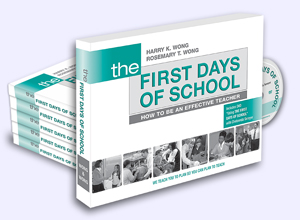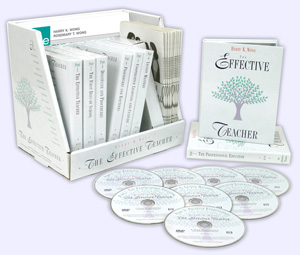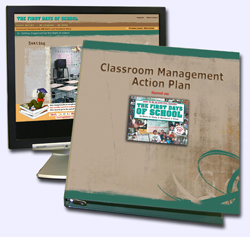|
 |

Special to the Gazette
August 2012
Twenty-two, First Year, and Legit
Prepare for the Unexpected 
Kara Moore is still smiling in spite of her unsettling start to her teaching career. Flexible and adaptable are not common traits among first-year teachers, yet Kara took her reassignment in stride and prepared AGAIN for the start of her teaching career. At mid-year she shared, “So far teaching has been phenomenal. I honestly love my job and still cannot believe that teaching is a ‘job’ and that I am getting paid for it.” At the end of the school year in May 2012, Kara wrote, “I cannot believe my first year of teaching is already over. It has been an amazing experience. My only problem is how in the world do teachers move on after they get so attached to these amazing children? I honestly do not know how to let go.” Have a Plan and Work Your Plan How did Kara turn her situation around and create the positive year she and her students had? What happened? Very simple. Football season is about to start and all coaches go into a game with a game plan. All pilots take off with a flight plan. All effective teachers start the first day of school with a classroom management plan. If you do not have a plan for this coming school year, the students will plan the school year for you and you will be chasing after the class every day. How Kara succeeded is a lesson for all teachers, new about-to-begin-teachers and veteran teachers alike. When Kara learned that she had been hired, she quickly began developing a classroom management plan. She knew from her student teaching experience that classroom management came first and then the curriculum would easily fall into place. She learned this concept under the supervision of her master teacher, Sarah Nuckols at South Point Middle School in Ohio. Kara learned the strategies and tactics from watching her run a smooth, consistent, functioning classroom. (Sarah Nuckols is now the assistant principal at the middle school.) Kara says, "There is no better combination than the experience of a veteran teacher and the enthusiasm of a new teacher." Kara had watched The Effective Teacher video when she was in high school. It was a program called “Teacher Academy” and was offered to juniors and seniors to introduce them to the different opportunities in education as well as the importance of teaching. She said, “The video stuck with me . . . even as I was preparing for my own teaching experience.” She also knew of The First Days of School. She immediately bought a copy of the book and said, “I watched the DVD in the back of the book of Chelonnda Seroyer's first day of school and literally watched it 10 times and paused it probably about a million times to use some of the exact things in my classroom management plan and construct my plan. I had my syllabus, guidelines, and procedures made up. I wrote a Back-to-School letter. I wrote out my plan and rehearsed my first day speech. I was going to work my plan. “I was prepared. If You Have a Plan, You Can Modify the Plan As Kara was busily creating a stimulating, welcoming, and positive classroom, her principal called her into his office and broke the bad news to her. She was being moved to a different grade level, teaching a different subject. This would mean switching classrooms to a new room on a different floor of the building. This was one week before the start of school. She said, “I went upstairs to my new room and was completely dismayed. I walked into the exact same classroom where I was a student in an 8th grade social studies class and found the classroom decorated exactly the same way it was when I was a student in the class.” The now vacated room belonged to her 8th grade social studies teacher. Because of her retirement, this made the room available for Kara. The teacher left the room just as Kara remembered it. There were even pamphlets stacked in the room that she remembered filling out and coloring. Some of the papers had dates from 1993. This was when Kara was 4 years old. Although the room brought a rush of memories, Kara set out to make this old classroom her new classroom. For Kara, the sudden transition from teaching math to teaching social studies was easy. She had a plan and all she had to do was tweak the plan. If you have a plan and change comes, just modify the plan. But, if you do not have a plan, change will be traumatic. Kara’s First Day of School Plan We met Kara before her school year began as a first year teacher when we spoke to the teachers in the Coal Grove, Ohio, area in August 2011. She shared her already made, first day, classroom management plan with us.
Click here to see the rest of Kara’s first day classroom management plan. Past teachers.net columns have featured teachers with first day plans. Click here to go the column that featured Sarah Jondahl’s classroom management plan. Her plan is also featured on pages 213–218 in The First Days of School. No Classroom Management in College Kara’s first day of school went, as she says, “So smooth. I was organized and the organization gave me a sense of assuredness that helped me to begin with a positive attitude. I taught my plan and procedures and when the bell rang for each of my classes to switch on the first day of school, everyone stayed in their seats and waited for me to say, ‘Have a great day.’ I didn’t expect students to follow procedures that quickly, but they did starting on day one. It was amazing.” She says, “I honestly have to say that starting off the year prepared with a well-organized plan gave me a good foundation for the rest of year. As the year went on I was able to manage running a consistent classroom while being able to create positive relationships with the students. “I honestly feel having a plan to start the school year was the most crucial part of my success as a new teacher.” Kara reflects on her college days and says, “Besides The Effective Teacher video I saw in high school and my student teaching experience with Ms. Nuckols, classroom management was never mentioned to me in college.” Start Every Class with an Agenda 
Effective teachers view classroom management as a process of organizing and structuring classroom events for student learning. Kara’s students know what the events for the class are as she has an agenda posted. Creating a well-managed classroom with established procedures is the priority of a teacher the first two weeks of school. The students know to look at the agenda when they enter the classroom to determine their work tasks for the class period. The procedure of an agenda removes the need to harass the students every day, every period, to sit down and be quiet while the teacher wastes valuable instruction time taking the attendance—and the students are talking, wandering, and texting—waiting to be told what to do when everything can be listed on the agenda with the students responsible for reading it and beginning the class period. Kara says, “Because my students know what to do, it is now the 5th week of school and I am absolutely in love with my job. I cannot believe I am actually getting paid to do something that I could not wait for. I look forward to my weekdays now more so than the weekends. I always knew I wanted to be a teacher, but I never could have imagined the love that I truly have for being in the classroom. “It is crazy some of the looks I get when I tell people I teach 8th graders. They look at me as if I have a screw loose or something, but I would not have it any other way. My only hope is that my passion and fire for teaching will stay the way it is forever, because I could not possibly be any happier than I am right now.” The Lesson Objectives 
With a classroom that is well organized—the first characteristic of an effective teacher—Kara can now focus on the second characteristic of an effective teacher, which is teaching for mastery of the lesson objectives. Kara has different ways of pointing out to the students what they are responsible for learning. Sometimes, she uses an objective board to display what the learning targets are for the lesson. The board tells the students what they will be learning. She knows her students like to look out the window. So, she places the objective board in front of the window, so they are forced to at least take a glance at it as they peer out the window! Her lessons include rubrics so students can self-assess their learning and progress. The rubric she shares in her Thirteen Colonies Lesson Plan and Rubric can be redesigned for whatever topic they are covering in class. It can be used as often as needed. Kara uses the rubric to check her students’ understanding of the topic. If she sees students struggling with a particular objective, she can tweak her instruction to help the students make progress. She can also see if students are comprehending quicker than anticipated. If that is true, Kara moves ahead giving her students a chance to explore a topic in deeper detail and enrich their learning experience. A Positive Attitude for Success 
As a college student, Kara had a classmate that had the outlook of always being a “gamer.” With that attitude, stress melted away, and she was reassured she was a winner. Kara uses this same concept with her students. She tells her class to be a gamer and get it done. She reassures them they can do anything with their gamer attitude. Even students in the class tell each other they are gamers. Kara often hears in her classroom, “Guys, we can do this. We’re gamers!” This approach helps students connect with each other. It makes the class a team, where there is strength in numbers and support for one another.
Kara credits much of her success to her colleagues at her school. She says, “The support of my co-workers has played a huge role in my success as a first year teacher. They gave me honest compliments and offered me advice whenever I needed it. Several teachers came to me and admitted they thought I was going to have a harder time being the ‘authority’ figure (as a 21-year-old) and running a smooth classroom. They were impressed and told me to keep up the good work.” With her first year behind her, Kara shares some insights into how to become part of the team at your school. She says, “As a new teacher or even a teacher needing help, be brave and ask for help when you need it. And once in a while write a note to thank people for their help. Your thanks is all teachers want as it validates what they do every day. This tells people of your character and your commitment to helping students.” Planning for a New School Year Amanda Brooks, another successful first year teacher, was featured in our August 2010 column. Amanda’s success continued into her second year of teaching. She shared at the time, “My state test scores came back and my class had the highest test scores in my school, and I am saying this to encourage new teachers to get it right the first day and then enjoy the rest of the year.” At the end of her third year of teaching, Amanda shared this gem of insight. “Three years ago I was a terrified, first-year teacher on the eve of beginning my career when I had the good fortune of hearing the Wongs at our school convocation. I can now say that teachers often overlook the importance of procedures, and I firsthand can say that they have drastically changed the lives of many of my students. My kids come from homes where there are no procedures, but when they come to me they get the safeness of consistency, which to many students means so much.” Amanda continues to grow in the profession. She just finished her masters in curriculum and instruction and she “wants to help new teachers.” And Kara? She is working on her masters and wants a doctorate before she is 30. We are eager to track her progress and hear of her success in the years ahead. She’s a gamer—she will make come true whatever she sets her mind to accomplish. Success did not come to Amanda and Kara randomly. This is true of the many teachers we have featured through the years in this teachers.net column. Each of these teachers PLANNED for their success. And it all started with a classroom management plan that brought order to the chaos that could happen in the classroom, logic to the confusion of how the classroom is going to operate, and care to the anxieties that students and teachers experience—especially on the first day of school. 
When the students enter your classroom this school year, will they be welcomed with who you are and the anticipation of an exciting school year? Or will they be greeted with faded memoires of a time when teaching was exciting for you? There are Seven Questions all students want answers to on the first day of school. (See The First Days of School, page 102.)
Effective teachers include the answers to these questions as part of their classroom management plans to share with students on the first day of school. From the moment your students cross the threshold, opportunity for learning must take place. How you organize your classroom so students know what to DO will determine whether they will have the opportunity to LEARN. Plan for your students’ success and your success each day of this new school year.
|
|||||||||||||||
|

